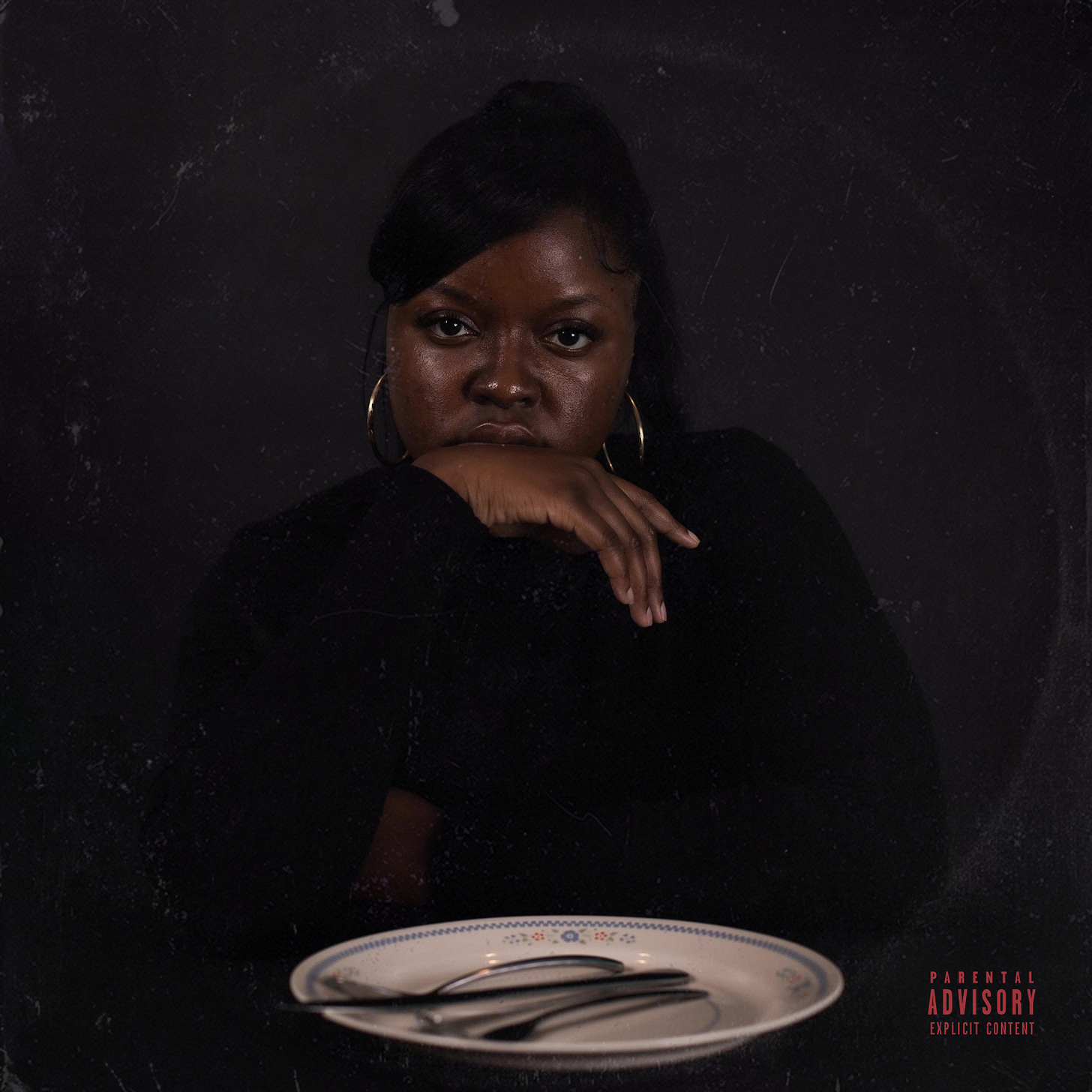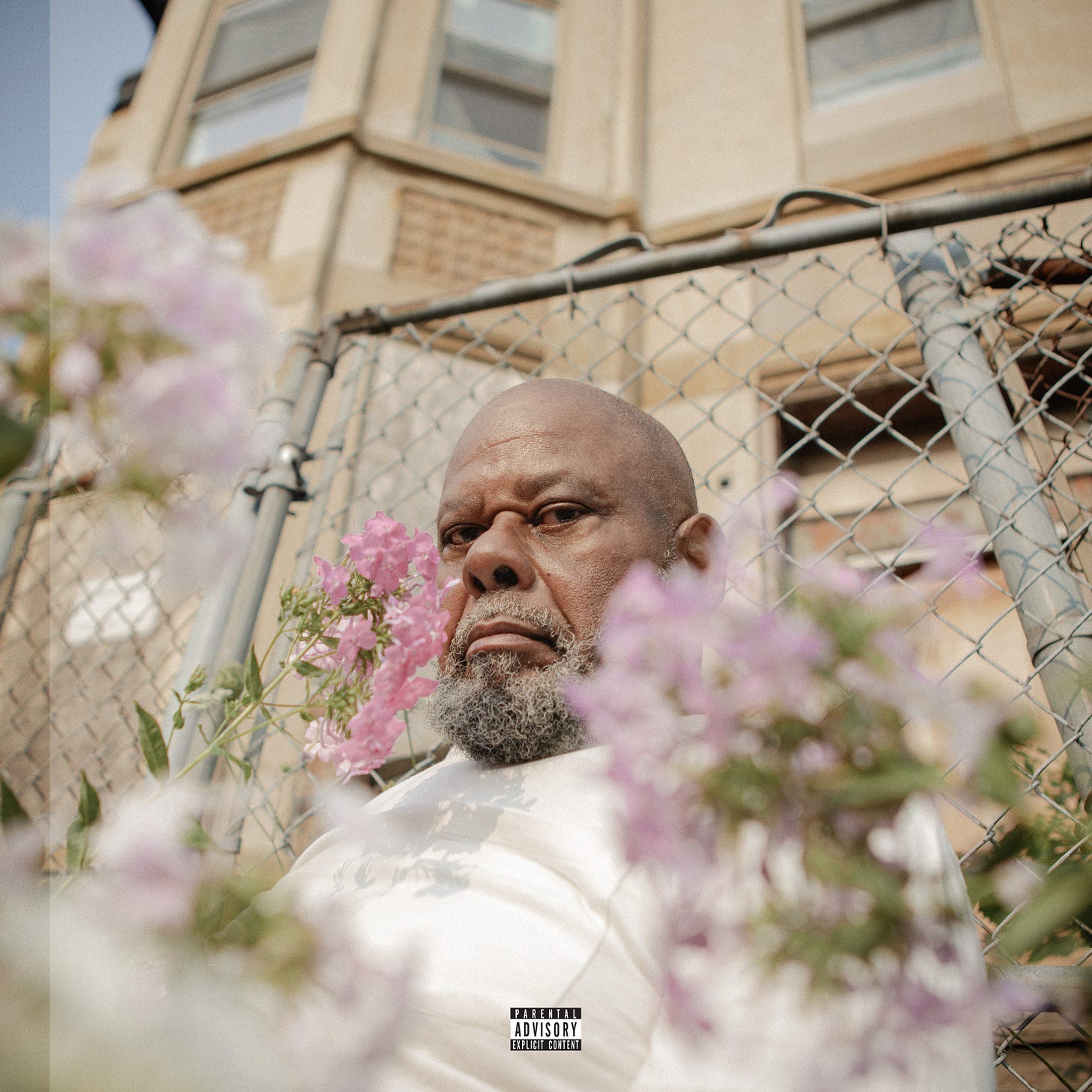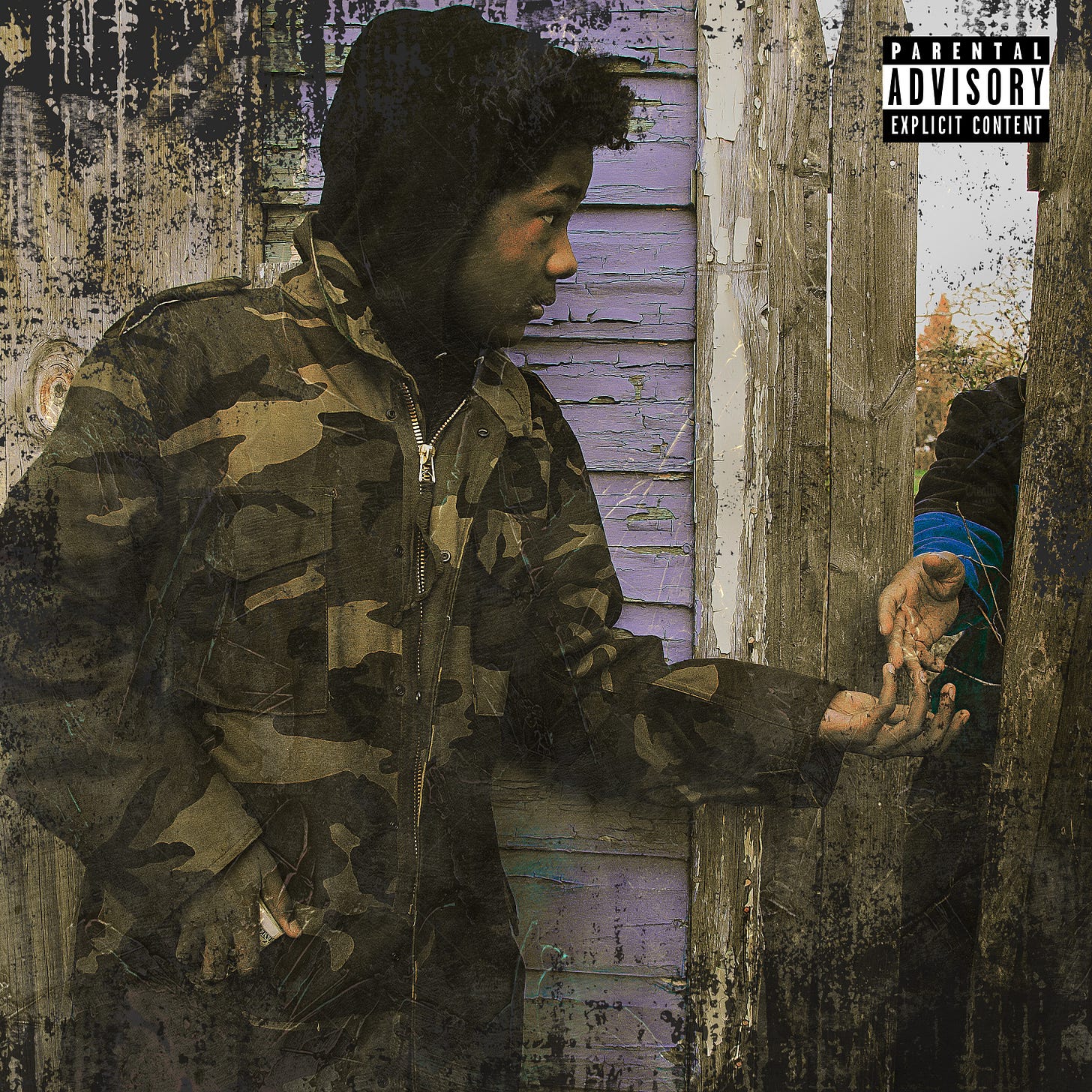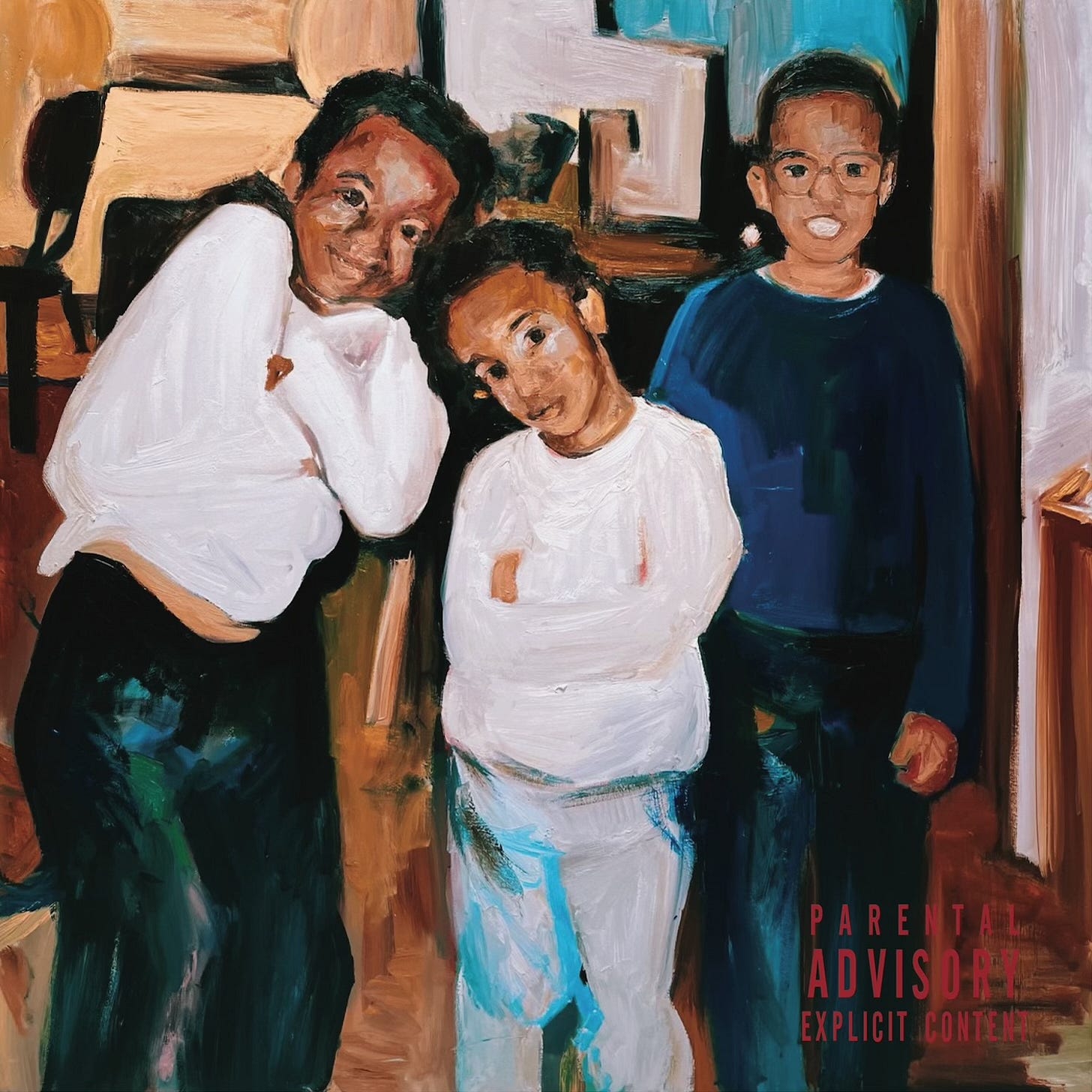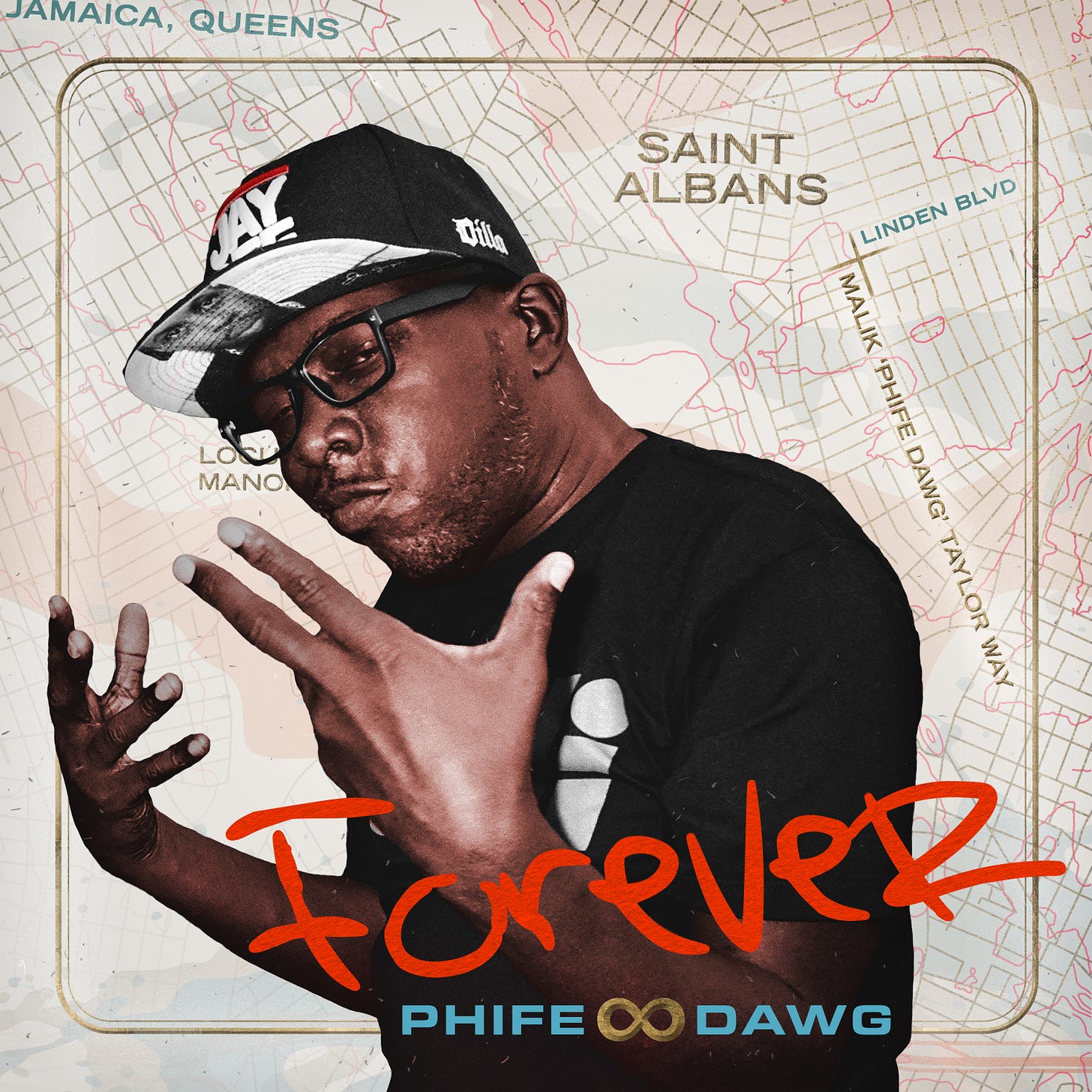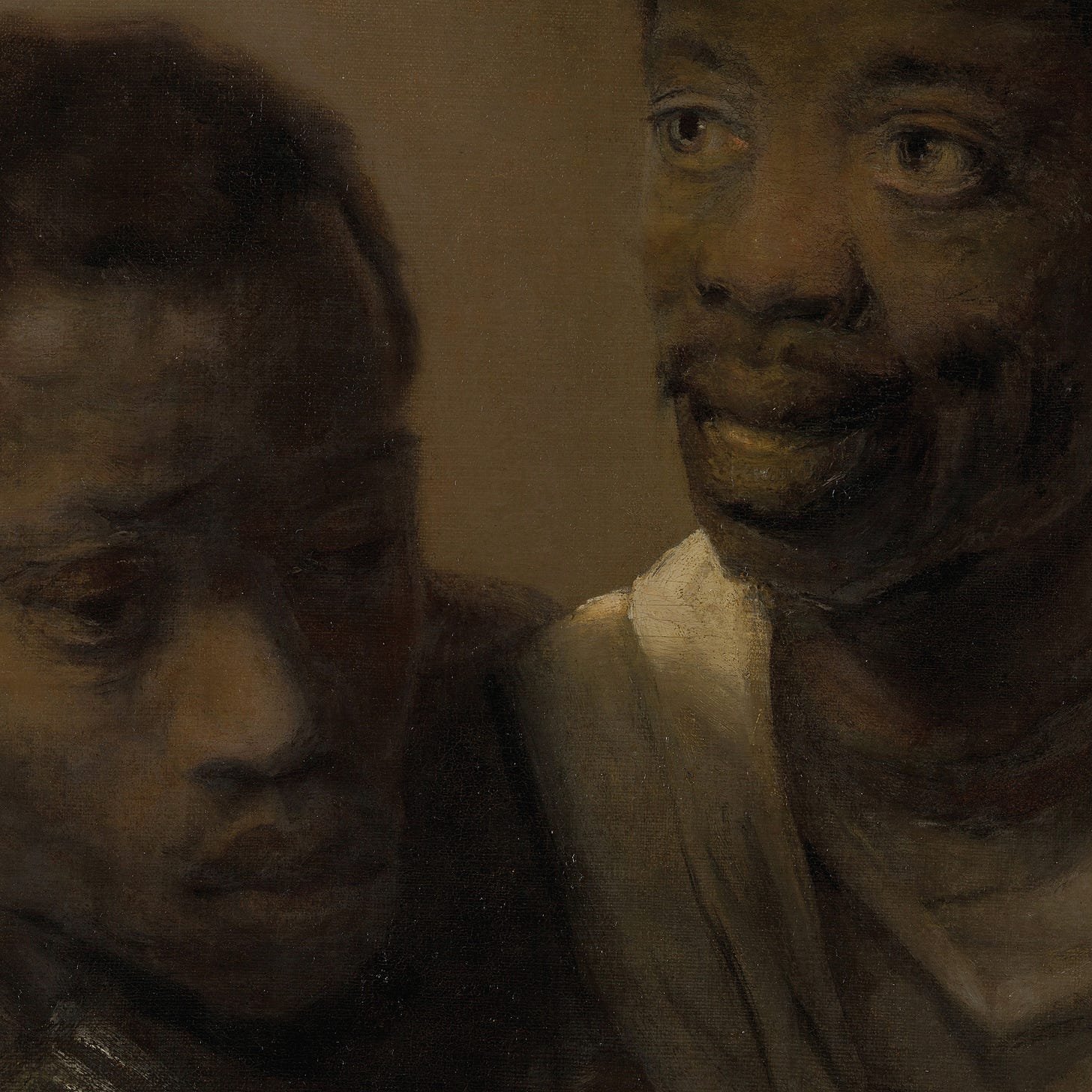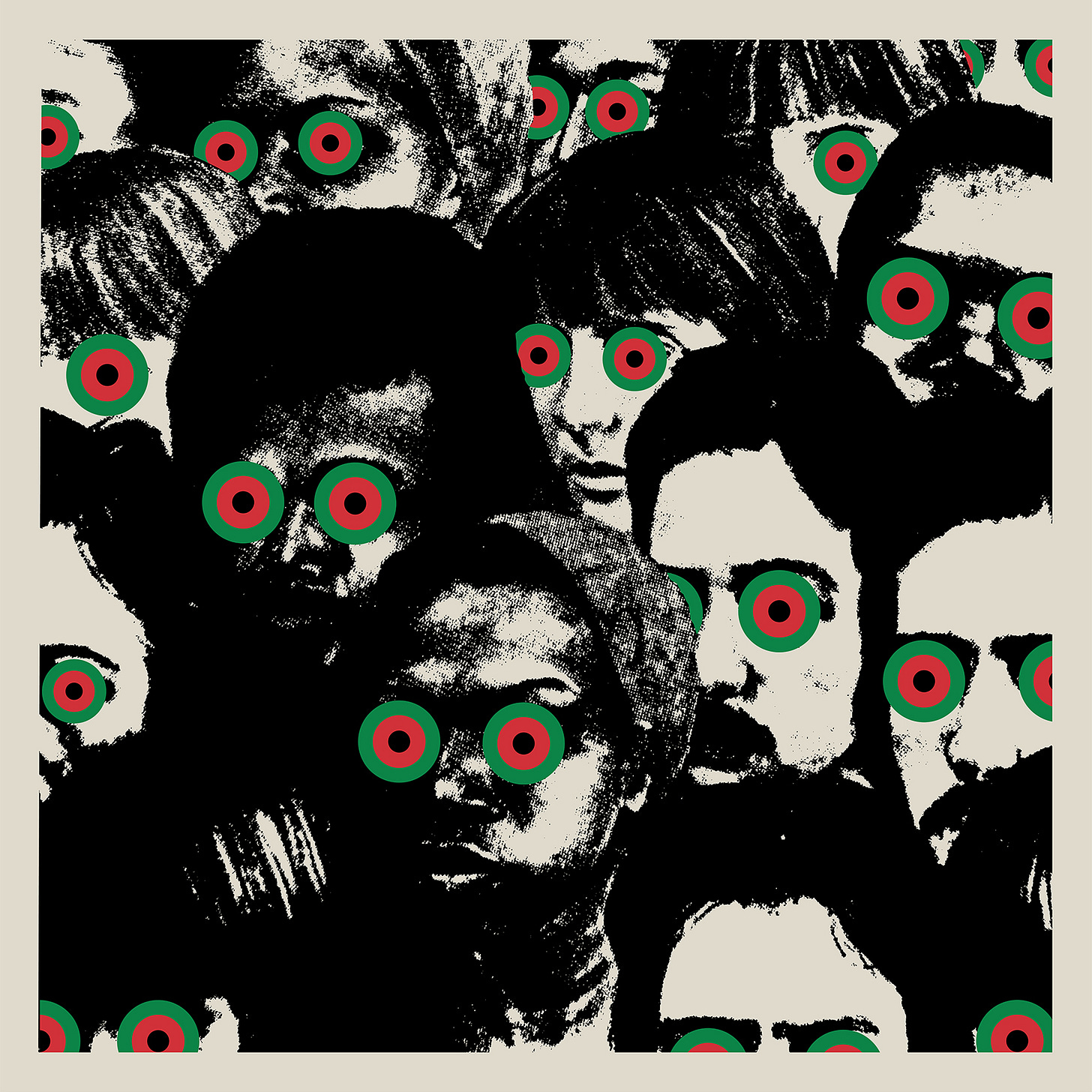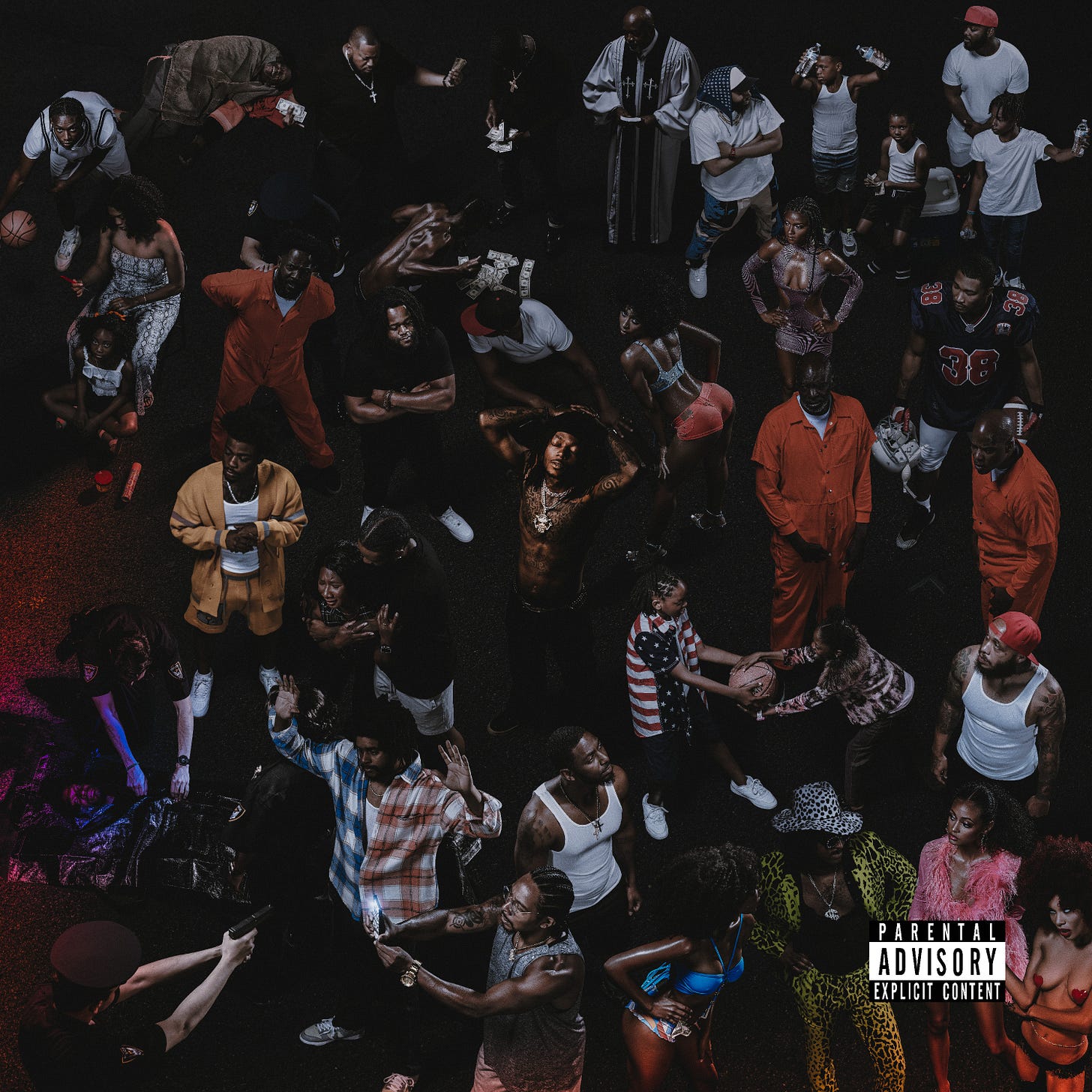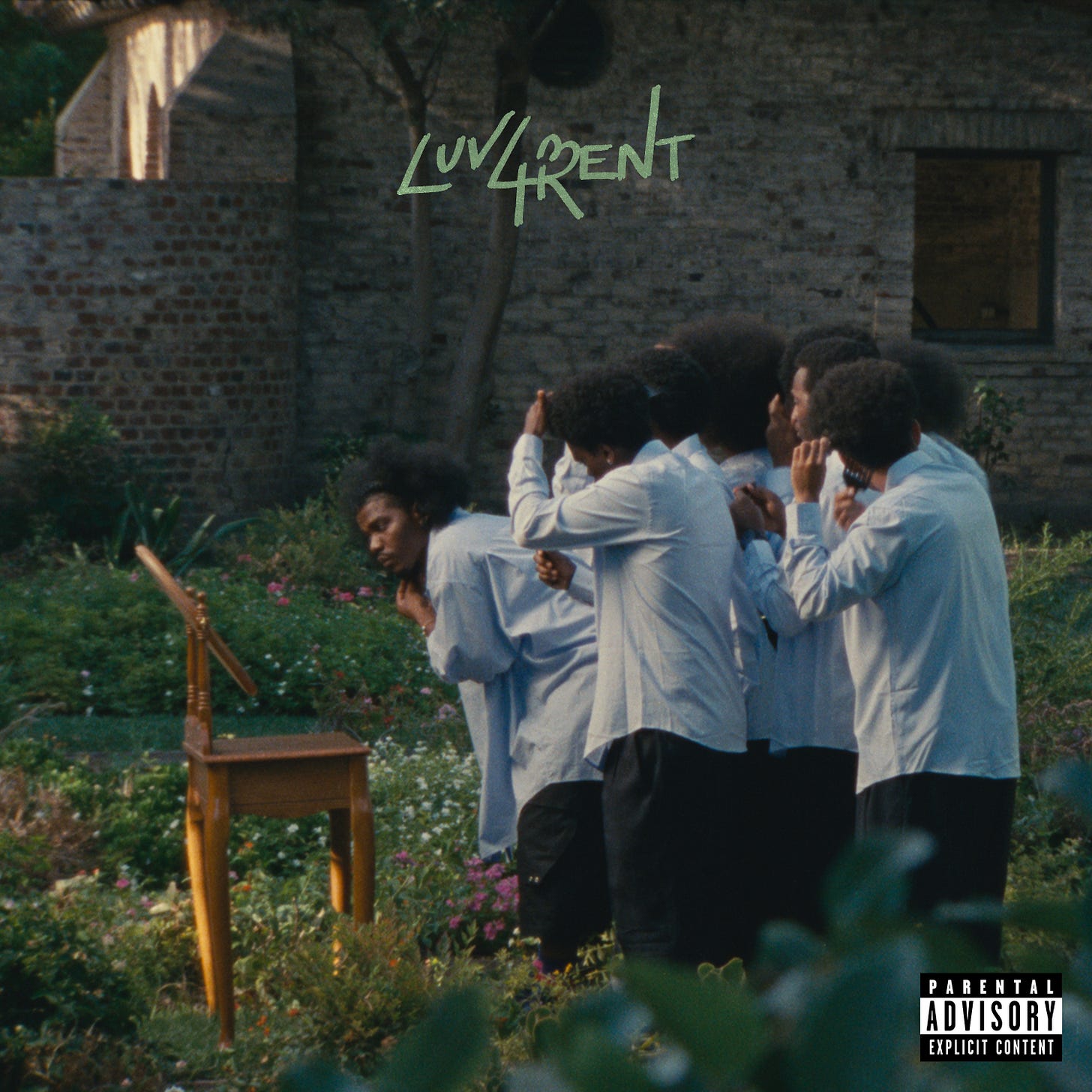Best Hip-Hop Albums of 2022
It's time to highlight the twenty best hip-hop albums of 2022.
Let's make sure we're all on the same page before you start scrolling down the list of the 20 Hip-Hop albums of 2022, in no particular order and most likely without reading any of the words affixed to many of them:
This is our list, not yours. We don't expect or want you to agree with every album choice. We want you to listen to a few fantastic albums you may have missed over the last year.
Enjoy the show!
Honorable Mentions: As Above So Below by Sampa the Great, Continuance by Curren$y & The Alchemist, GHETTO GODS by EARTHGANG, Gothic Luxury by Meechy Darko, Hugo by Loyle Carner, It’s Almost Dry by Pusha T, No Rest for the Wicked by Ransom, $oul $old $eperately by Freddie Gibbs, Shape Up by Leikeli47, SICK! by Earl Sweatshirt, Simple. by IDK, Zhigeist by Elzhi & Georgia Anne Muldrow
Che Noir — Food for Thought
Che Noir is undervalued, although she has a solid pen game and consistently improving beats. On the other hand, Food for Thought does not necessarily push the envelope or take artistic risks. However, there is a distinct fascination with her fulfilling the expectations of her longstanding supporters. Che has already established herself as the key to her field's success. Aside from a handful of notable guest appearances, the 12-song collection showcases her developing producing skills, with her handling the tracklist's sparkling gems on her own while soliciting the assistance of a multitude of prominent producers to provide variety. The project isn't her most remarkable work, and it may not convince naysayers, but it's nonetheless terrific, even if it doesn't push her over the proverbial edge. It retains her prominence, which is crucial. — Jamila Wamuiru
Standout Selections: Split the Bread / Ladies Brunch / Table for 3
Saba — Few Good Things
Saba's third studio album, while not his finest, is undeniably his most enjoyable, emerging from the shroud of sadness brought on by CARE FOR ME with new reflections on self-acceptance, economic demands, and how celebrity pervades his life through relationships. It's more laid-back and doesn't demand as much of your attention as his previous work, yet it's frequently just as lovely. Few Good Things' overt allusions to Hip-Hop and Trap, combined with a blend of Soul for an exhilarating and diversified sound that keeps things inherently Saba. Few Good Things is still produced mainly by Saba and his longtime collaborator, daedaePIVOT. Saba's songwriting has been one of his greatest strengths; listening to a Saba song often seemed more like listening to someone tell you a tale on a long drive, and that narrative muscle is still flexed throughout Few Good Things. Sometimes he wants to let things go and take care of himself first, and such stories won't necessarily have the same impact on you as an eight-minute outflow of rage, sadness, and terror, but experiencing both is a vital part of moving ahead. Saba is still dealing with death and managing his success on Few Good Things, but he's more optimistic about the future than ever. The maturity and perceptiveness exhibited here by a young artist are incredibly touching. — Imani Raven
Standout Selections: a Simpler Time / 2012 / Few Good Things
Snoop Dogg — BODR
Snoop Dogg's latest album after purchasing Death Row Records is fantastic. He appears to be in a good place, which is not surprising given that he now runs the label. There are several tracks here where Snoop raps about his peak, the G-Funk days, and even a Nate Dogg feature. I'm astonished by how excellent his production choices are and how Snoop nails both his old and current sounds. In contrast, there are some poor tunes on this album. I'm willing to overlook a couple of lackluster songs because BODR is impressive collectively. Snoop seems fun and has some excellent chilled flows on some of the cuts. If you haven't liked Snoop's past couple of albums, this one is a step in the right way since it was the most unexpected album of 2022 for me. — Reginald Marcel
Standout Selections: Sandwich Bag / Crip Ya Enthusiasm / Pop Pop
Conway the Machine — God Don’t Make Mistakes
God Don't Make Mistakes by Conway the Machine is his best album ever. The Buffalo-based Griselda rapper gets more introspective and personal than ever on his Shady Records debut and second solo studio LP, following From King to a God and a long string of collaborative projects, mixtapes, and EPs. Daringer and the Alchemist's production shines out. Still, other producers kept the album’s overall sound pretty unified, even if the contrasts in gritty versus polished production techniques of the different producers participating are discernible. That said, God Don't Make Mistakes is a fantastic album in general, the latest in a long line of dope Griselda family ventures that have helped bridge the gap between the underground and the mainstream. — Murffey Zavier
Standout Selections: John Woo Flick / Stressed / God Don’t Make Mistakes
Benny the Butcher — Tana Talk 4
Benny the Butcher is now in a different place. For a long time, the stories of drug runs and heists were not merely for the music: it was a necessary, if troublesome and risky, step he had to take to ensure he and his family had what they utilized at the end of the day. But, as his rap career progresses and he gets older with each new record, he's no longer satisfied with it. Before the album's release, he stated unequivocally that things were about to change. And they do with Tana Talk 4: he's now dealing with the aftershock of the things he did to get through the month so long ago, and he's beginning to see his environment in a new light. It's still an album about drugs, death, and vengeance. Still, now that Benny is further removed from that existence, he can add emotional depth to these themes, which begin to examine the trauma and agony that was inescapable in the areas Benny came from. Tana Talk 4's little tweaks to Benny the Butcher's standard form allow him to be immensely confident and vulnerable over these beats while retaining the grit and force that made his early albums and mixtapes so captivating in the first place. He's more concerned with the future than the present. His days of drug dealing, robbery, and whatever else got him the money he needed behind him as he began to focus on his family and his new ambitions. His music is still an outlet for all those feelings and tales about those occurrences. Still, it’s directed somewhere new that he can explore even more in the future. His maturity and life experiences may tell a far better story than any of the ones he's previously presented. It's a little step into the spotlight for Benny the Butcher, but it couldn't be a better way to begin this new chapter in his life and career. — Philemon Hayes
Standout Selections: Johnny P.’s Caddy / Back 2x / Thowy’s Revenge
Phife Dawg — Forever
Phife Dawg, co-founder of A Tribe Called Quest, died in 2016 at 45, just after finishing his last contributions to ATCQ's excellent farewell album We Got It from Here... Thank You 4 Your Service and beginning development on his second solo album. Posthumous albums are challenging to get off, but Forever is an example of a posthumous album done correctly. It's a brilliant pastiche of golden-era Hip-Hop sounds and lyrics that focus on maturity, family, and maintaining integrity with age - all reflective of what mattered most to Phife when he passed away. It was completed after his death by a friend, collaborator, and business associate, DJ Rasta Root. The lyrics of Phife are all about his love for his family and the lessons he gained on his journey to manhood. It's also clear that Phife Dawg's friends and loved ones were involved. Beats from J Dilla, Nottz, 9th Wonder, and Khrysis, as well as cameos by Q-Tip, Busta Rhymes, Redman, Maseo, and Pos of De La Soul, Rapsody, and Little Brother, complete out a warm and, at times sorrowful send-off for one of Hip Hop's most compelling characters. Forever, released six years to the day following Phife's death, serves as both the culmination of his artistic statement and a loving tribute to the artist himself. — Harry Percy Brown
Standout Selections: Fallback / Nutshell, Pt. 2 / Forever
Fly Anakin — Frank
Frank Walton has been crafting music for years, yet his debut album emerges with the relationships and strength of an individual who has already established themselves on the scene. As a teenager in a place with hardly any Rap scene, Walton’s music as Fly Anakin is a hallmark of the Richmond sound he helped establish while tracing a map of the creativity and ties he's made across time. A collaborative project with Pink Siifu last year, production credits from Madlib and DJ Harrison, and the 11-piece Mutant Academy collective he founded in Richmond are just a few of his accolades over the years. Frank begins his lineage of albums with a technically masterful and artistically singular collection of tracks, where he flows on top of beats stylistically derived from all sorts of different scenes while writing humorous songs. — Harry Percy Brown
Standout Selections: Love Song (Come Back) / Sean Price / No Dough
Denzel Curry — Melt My Eyez See Your Future
Denzel Curry's fifth album is a shift in perspective: instead of being carried by external characters and defined story arcs, Melt My Eyez See Your Future engages you with these ideas on a more immediate level, not raising your blood pressure but rather lowering it to allow Curry's storytelling to take center stage. Knowing this and approaching the album in this manner has various effects, making its greatest moments feel less new and exhilarating, and its worst parts feel more dismal. Despite this, Melt My Eyez is a terrific listen, with Curry's mental reset allowing him to explore the same issues he did on previous songs with a fresh perspective. Nothing else he's done so far compares to it at its best moments. It's an album that's heading somewhere quite fantastic. Despite its flaws, it's a significant improvement in Curry's emotional intelligence and creative scope, especially when revisiting subjects he's discussed in the past. The production is pretty and ear-pleasing by default, and it feels like Curry has usurped his artistry, stepping back from everything his music has been built on since the beginning and starting over with a clean slate where the things that drove him back then are no longer needed, replacing anger and vitriol with healing and meditations on what brought him to this point. — Philemon Hayes
Standout Selections: Melt Session #1 / Walkin / Troubles
billy woods — Aethiopes
billy woods can transport you to his world like no other. His distinct cadence, off-kilter and spoken word flow, and ear-catching rhythm selections have you hanging on his every word, with layers upon layers that continuously astonish with how much impact he can pack into a single bar. But he's never trite in his efforts, eschewing vast theatrical sounds in favor of a gloomy and solitary ambiance in which his thoughts wrap around one another, tangled in their hundreds of concepts that slowly unravel the more you listen to his albums. He's exceeded himself yet again with Aethiopes, with a larger and bolder concept than he's ever gone for and some of the most audacious production in years from Hip-Hop maestro Preservation, all adding up to a decade-defining triumph. Never before has his music taken on so many ideas nor sounded so suspenseful and isolated. Aethiopes is the realized extreme of his artistry as he delves into everything from the historical forces that shaped Black identity and culture to the unfortunate circumstances that poverty and class divide impose on people to how family turmoil and disarray can wreck a child's perspectives and understanding of life. Even for someone on the cutting edge like woods, it's a very ambitious endeavor that succeeds on every level, with all the various pieces coming together to produce a profound and spine-chilling album that never holds back. — Brandon O’Sullivan
Standout Selections: No Hard Feelings / Sauvage / NYNEX / Heavy Water
Vince Staples — RAMONA PARK BROKE MY HEART
How is RAMONA PARK BROKE MY HEART being treated? It's such a drastic change in his music, from his presence as a rapper to his beat selection and lines, that it immediately appears to be a step back from all he's done previously. You'd be correct in identifying the album as a departure from the wacky Long Beach rapper we've known since his breakout 2015 song Norf Norf, but that's the point: that's not who Vince Staples is anymore. Following his seminal self-titled project in 2021, he made a warm and painful return to his hometown of Long Beach, where he discovered that things were just as messed up as they were when he was a youngster. He's always been a contrast artist, but on RAMONA PARK BROKE MY HEART, he goes in the opposite direction, making the album open, mourning his stolen childhood and all the pain and shattered bits of himself he's had to pick up as a result. It's an album about wanting something he'll never have, about Vince's youth being behind him and forced to examine the damage, about RAMONA PARK BROKE MY HEART being his method of putting it all to rest. Once you start listening, it's a challenging, fantastic record. The most vulnerable Vince has ever been on the mic and is a tribute to his strength as a lyricist and rapper. — Reginald Marcel
Standout Selections: MAGIC / WHEN SPARKS FLY / LEMONADE
Kendrick Lamar — Mr. Morale & The Big Steppers
Hip-Hop anomaly Kendrick Lamar Duckworth has been a prodigy since he first took up a mic. If you look carefully, you'll see that he's progressing despite his many challenges. It's as though he made this album just for himself. That's not a sweeping view; I applaud Kendrick Lamar for creating a raw and honest piece of art that wasn't meant to fulfill any predetermined criteria for a great album. Mr. Morale's songwriting and musical approaches may benefit from greater cohesion. The first half of the album is particularly disjointed, with themes like trauma, sadness, society, and Kendrick's discomfort with a celebrity all intertwining with one another. As usual, the production quality was excellent. Baby Keem, Kodak Black, Blxst, Taylor Paige (actor), Summer Walker, Ghostface Killah, and even Beth Gibbons (Portishead) join Lamar on the album. Despite being more challenging to get into than what came before, the upsetting and illuminating passages here are worth listening to. Lamar risks everything with Mr. Morale & the Big Steppers to get closer to his unfiltered inner truth and produce some of his most challenging, genre-defying music. The record's purpose becomes more transparent with time, although it's not always pleasant to listen to. It's the next logical step in Lamar's maturation as an artist. He didn't make this album to sell millions of copies. It was more of an outlet for him to be very honest about how he's felt for the last five years. — Brandon O’Sullivan
Standout Selections: Worldwide Steppers / Father Time / Count Me Out / Savior / Mother I Sober
Boldy James & Real Bad Man — Killing Nothing
Killing Nothing was created by producer Real Bad Man and rapper Boldy James. Killing Nothing improves on the benchmark set by Real Bad Boldy, a collaboration between Real Bad Man and Boldy James. Killing Nothing is a more wholly formed album at 42 minutes, one that, in terms of quality, ranks alongside the Price of Tea in China, Manger On McNichols, and Bo Jackson, all of which were among the most significant albums recorded in the years in question. Real Bad Man's production may not be as experimental or boundary-pushing as the Alchemist and Sterling Toles on Boldy's recent albums, but his dark and atmospheric rhythms work well. Boldy James is one of the most consistent artists in the game, with an excellent recent run of releases. His flow is an acquired taste, but his bloodthirsty bars and attitude are unrivaled. He's one of the few who can do street rap better than anybody else. — LeMarcus Dontrell
Standout Selections: Hundred Ninety Bands / Open Door / Bo Jack (Miller Light)
ELUCID — I Told Bessie
Family is everything; ELUCID has never invested as much in his music as his latest effort, I Told Bessie. The album is named after his grandmother, who supported his ambitions as a rapper and recording artist and infused them with everything from old westerns to tales of black consciousness and a history that has accompanied him throughout his life. An essential early presence as a rapper, ELUCID’s signature sound developed and grew while living with Bessie in Crown Heights. Since her passing in 2017, everything she did for him has been incorporated into his music. With this latest LP, he now recognizes himself and emphasizes himself and his relationship with her music more than ever. I Told Bessie's abstract narratives of family, identity and self-discovery are fueled by somber, conflicted rhythms that balance the album's loose, sometimes playful rhythms. A story based on reality. The sound of I Told Bessie is dreamier, more honest, and more powerful than anything else in ELUCID’s extensive discography, and its unique emotional details make it more challenging. — Brandon O’Sullivan
Standout Selections: Spelling / Sardonyx / Impasse / Jumanji
Lupe Fiasco — DRILL MUSIC IN ZION
DRILL MUSIC IN ZION is Lupe’s most efficient (while not his best work), with profound introspection, convoluted bar work, and robust rhyme schemes. Lupe is an all-time great since he composed this entire album in 72 hours and was able to provide master poetry and flows. Many fans with the ravenous young Lupe imprinted on their brains may find it challenging to shift to this more youthful version of the hip-hop vet. But the work is worthwhile: DRILL MUSIC IN ZION has a lot of good attributes, such as numerous well-crafted jazzy beats by Soundtrakk and a plethora of excellent work by the lead artist himself. In an attempt to express his religion through his hometown and how preconceptions damage the picture of holistic stomping grounds for Rap music, Fiasco highlights or relabel it as Zion, a location of spiritual strength and revelation. — LeMarcus Dontrell
Standout Selections: MS. MURAL / DRILL MUSIC IN ZION / ON FAUX NEM
Danger Mouse & Black Thought — Cheat Codes
It would be surprising if the Roots were not mentioned here. Black Thought, the main vocalist of the iconic hip-hop group the Roots, is widely regarded as one of the best rappers of all time. Black Thought has matured like fine wine nearly thirty years since the Roots began recording songs. His performance, confidence, and everything in between are all outstanding. Three decades later, you're still slinging rhymes and smooth lines that rival the new school rappers? It's awe-inspiring in spades. When I listen to Cheat Codes, I ask myself, "What's not to like?" There's a lot to like, plus its just 38 minutes long, so it's not too long. So many fantastic rap albums go unnoticed because of their length. For various reasons, this has been a continuing concern. It was an issue a few years ago since it was too fat, and people didn't want to sit through such a frightening run duration. Nowadays, musicians release deluxe albums that are essentially two in one, which is simply excessive. 35-50 minute albums are an excellent middle ground. That is precisely the situation here. It does not overstay its welcome. Danger Mouse and Black Thought complete their tasks and accomplish their goals. This is, without a doubt, one of the year's top hip-hop releases. — Harry Percy Brown
Standout Selections: Sometimes / Belize / Identical Deaths / Strangers
JID — The Forever Story
There's a reason JID named his third album, The Forever Story, the prequel to his debut. Deserving of the title, the Dreamville-signed rapper is one of the most exciting young musicians of recent years. He brings the label's bold and unique take on modern luxury Hip-Hop with his killer wordplay and talent. His vocal compliments come with fun beats, while his voice has enough variety to make him more than just a one-trick pony. JID is an artist who, more than anyone else, can tell a dense and emotional story about family, spirituality, and fame, establishing himself as a monumental moment in hip-hop in this decade. Many complex concept albums like this one tend to be more self-contained, focusing on how its witty lyrics and tangled references and memories interact with the larger goals of The Forever Story. The perfect balance of complex narrative scenes and rich introspection makes all sixteen songs on The Forever Story pop with vibrant colors and leaves you captivated by JID's every move. — Philemon Hayes
Standout Selections: Crack Sandwich / Kody Blu 31 / Sistanem / 2007
Roc Marciano & The Alchemist — The Elephant Man’s Bones
Roc Marciano's latest album with the Alchemist is a resounding triumph. The two have a natural connection and have a similar production approach, having pioneered rapping over samples with no drums or relatively limited percussion. The Alchemist's loops are typically spooky but languid, packed with dissolves and other production methods. Even when he's slicing up voice samples, so they’re interrupted mid-breath, it seldom seems abrupt, with plenty of room left for the words. His reputation is bulletproof, from his work with Mobb Deep soon before the millennium to the records he produced for Freddie Gibbs, Boldy James, and Armand Hammer in recent years. Marciano's vocal approach is equally quick-witted but never overpowering, blending deadpan comedy and witty pop culture references with grim drug-dealing themes. The Elephant Man’s Bones’ most sadistic lyrics, however, are not sensationalist, and they are balanced off by the record's sly sense of wit and cavalierly inventive sound. — Nehemiah Dawson, Jr.
Standout Selections: Quantum Leap / Liquid Coke / Trillion Cut
Ka — Languish Arts / Woeful Studies
Yes, I’m cheating here. Languish Arts and Woeful Studies are Ka's ninth and tenth albums, and I believe them to be a complete set. The final track on Languish Arts concludes with an instrumental featuring a flute identical to the one featured on the opening song on Woeful Studies, neatly uniting the two albums. Both projects are slightly under 30 minutes long, which would make them EPs, in my opinion, but when combined, this double header gives nearly an hour of high-quality music. On the other hand, Ka is the more extraordinary writer; his pen game is profound, and his lyrical flourishes are second to none. Ka's lyricism is unrivaled, and above all, it will require more time than expected to truly listen in detail and dissect all of the intricacies in his verses here. Ka's music may also be enjoyed on a more base level; the mainly drumless instrumentals and his spoken word flow are mesmerizing and calming - this is music to keep coming back to, whatever you want to get out of it. Ka adds two more treasures to his massive library with Languish Arts and Woeful Studies. — Brandon O’Sullivan
Standout Selections: Full Cobra / Ascension / Unindulged / Obstacles / Reap / Eat
Smino — Luv 4 Rent
Continuing to blend generations of Rap, R&B, Neo-Soul, and even psychedelic Pop styles, the St. Louis rapper, singer, and songwriter’s third studio album, Luv 4 Rent, Smino offers the most robust expression of his sound to date. I believe he is one of the few individuals who see music rather than hear it. It's impressive how he can glide through tunes depending on flawless vocals and hard-hitting raps. Smino accomplishes nothing on the record that feels forced. Every track is so naturally built from top to bottom that you can feel the grass grow between your toes as the record advances. Smino has a unique style of conveying his thoughts and phrases that no one else can match. The way he picks pockets and cadences with the flick of a switch is astounding; just a few contemporaries have the same skill as him, but it comes across as absolutely artistic owing to Smino's incredibly colorful and expressive demeanor. While the feature set is limited, this works to its advantage. — Reginald Marcel
Standout Selections: 90 Proof / Pro Freak / Modennaminute
Nas — King’s Disease III
The name Nas is probably familiar to you if you know Hip-Hop. The man behind Illmatic, considered the best Hip-Hop album ever made, has become the genre’s bible. Nas is over thirty years into his career and still hasn’t slowed down. Although he's had a few duds through sixteen studio albums and a handful of mixtapes along the way, there are sure to be any artist with a long career. He has released music in four different decades throughout his career. Nas has had more than one championship before, but you could call King's Disease III another championship. He's rapped hundreds and hundreds and hundreds of records, and he's still rapping like the rent is due. There are no features, which may make the album seem bloated since the same voice is heard for seventeen songs, but this is not an issue. The album goes by quickly. The features on his last few albums have been decent, but I prefer Nas by himself most of the time. His delivery is fantastic, which isn't typically the case with older rappers. Especially a rapper on Hit-Boy's productions. He has excellent content, but here is where he excels and deserves to be recognized. The exceptional output has a decent enough balance for Nas to show through.
Nas is intriguing because he doesn't need to modify much or go outside the box to remain interesting. Many musicians today lose appeal if they don't alter their whole style and move outside of their comfort bubble, but Nas has stayed true to his artistry for the most extended period, and it works so well. There's nothing more for him to prove. At this point, he's outdone himself. It's remarkable to see a career like his, particularly now that he's delivered one of his finest pieces of work. Who knows whether this is the end for Nas, but if it is, it's a fitting finish to a storied career. I can not wait to see what he accomplishes next if he continues going, which he may. — Brandon O’Sullivan
Standout Selections: Legit / Michael & Quincy / Reminisce / First Time


